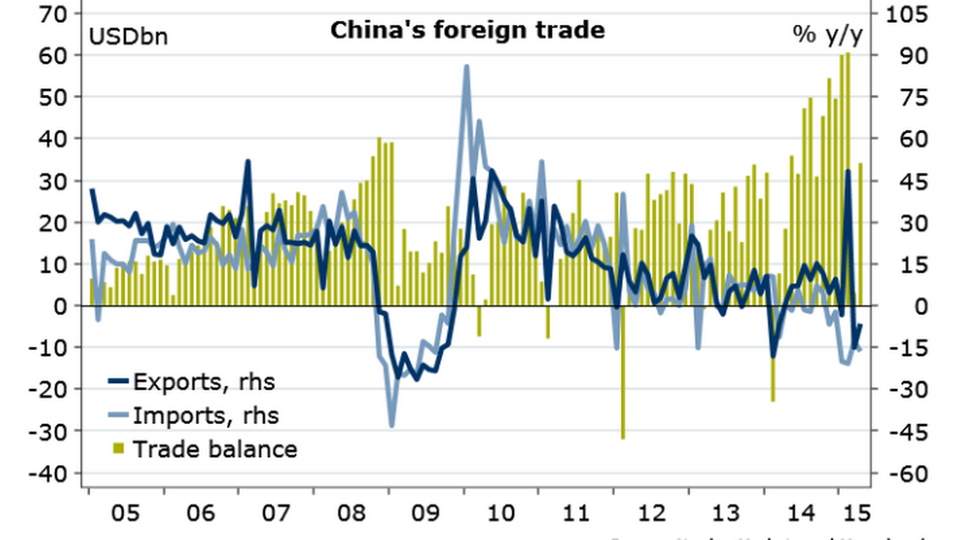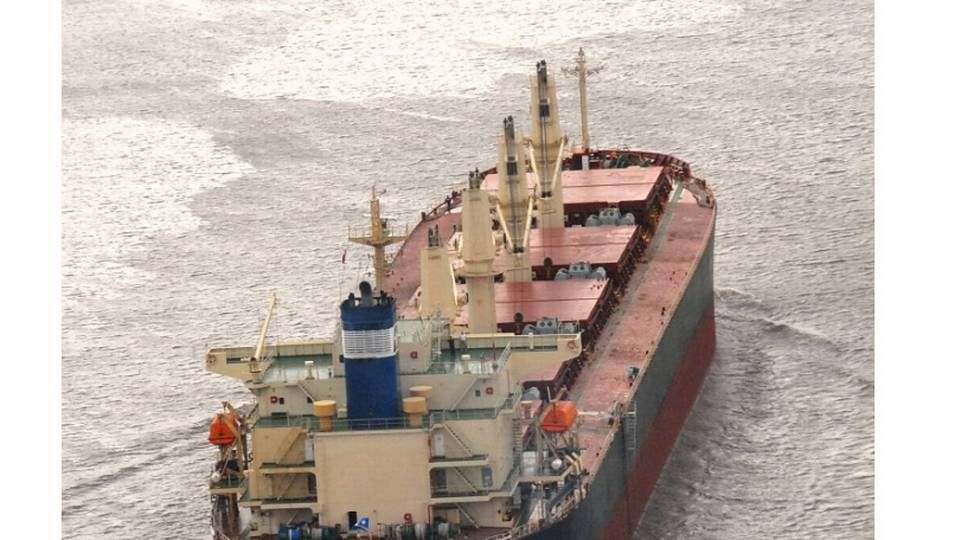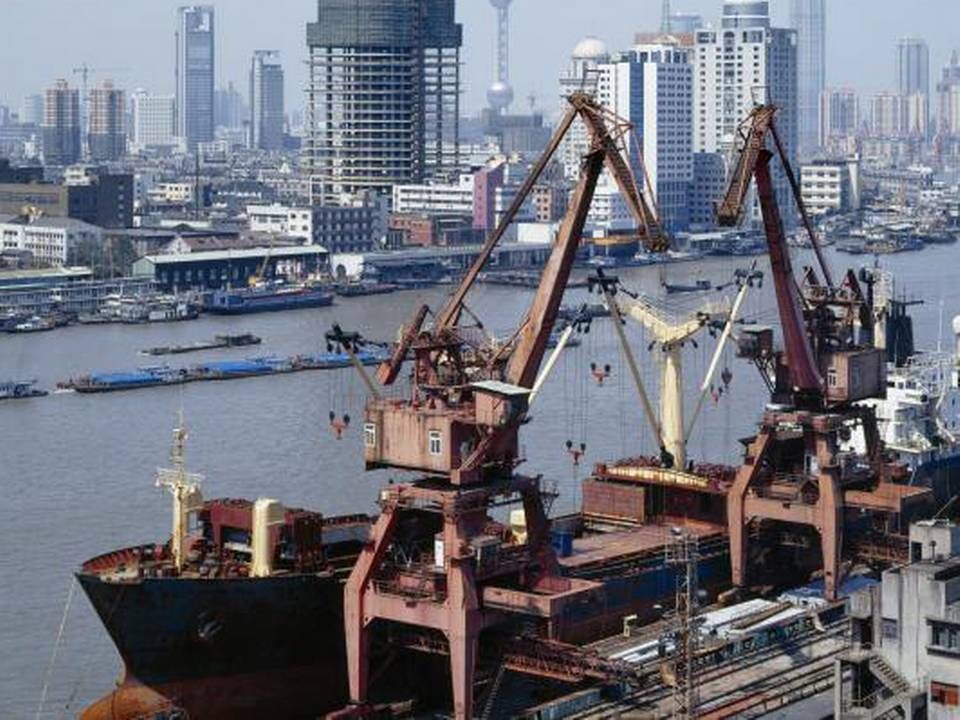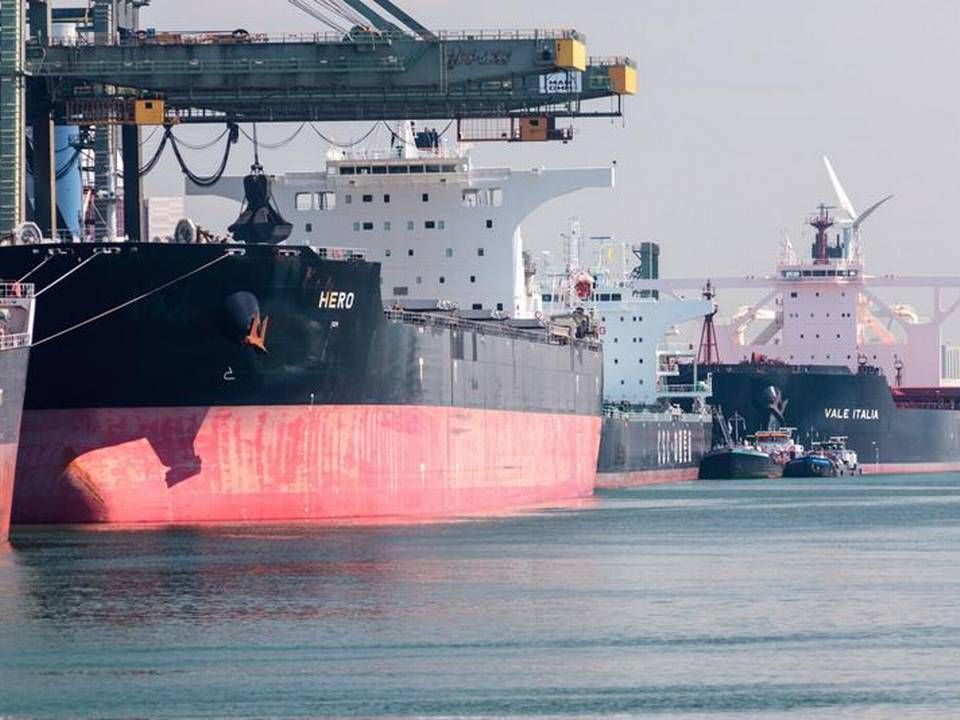China drawing the last air out of the dry bulk sector

The dry bulk industry's massive and historical deroute was further cemented on Friday by new depressive numbers on China's export and import in April, which developed far worse than economists and analysts expected. And the trend in the economic developments in China, which has as the dominant driving force behind the dry bulk industry for years, looks set to continue, according to senior analyst Amy Yuan Zhuang of Nordea Markets.
China's export took a surprisingly big dive in April, at 6.4 percent compared to the same month last year, and even though this development is still better than March's 15 percent drop in export, the new data from China still represent a major disappointment compared to market expectations of a 2.4 percent growth, says Amy Yuan Zhuang.
The country's import in April dropped even more than the export, sliding 16.2 percent.
Like many other analysts and economists, she is highly skeptical of the growth figures pointing to around seven percent in 2015 (GNP) that the Chinese authorities frequently publish and which are likely overrated and not credible.

Source: Nordea Markets
Dry bulk meltdown could be a mere first warning
Growing demand from the US economy was neutralized by a still-slow demand from Europe and declining exports to Japan. The combined trade data increases the challenges faced by the Chinese economy.
"The export, previously seen as a stabilizer for growth this year, is now becoming a risk of additional growth setbacks. The Chinese government has more to do if it wants to spur growth," says Li Wei of Commonwealth Bank of Australia in Sydney to Bloomberg News.
Amy Yuan Zhuang points out that the latest import and export data from China should be viewed in light of the fact that the Chinese currency is tied to the US dollar, which has increased and thus hurts China's exports.
Clear trend
The Chinese authorities have yet to publish underlying numbers on the declining export in terms of trade partners, but the trend is clear.
"China will not be an economy that depends on exports going forward. This is a strategy that China has adopted and chosen back in 2009-2010, and this trend is becoming stronger and we're now noting the real effects. We've seen growth rates of 15-20 percent in the country's imports and exports, and an annual growth target of 10 percent for import and export combined. This has definitely been lowered, also in 2015," says Amy Yuan Zhuang, who projects an export growth of 4-5 percent this year.

She stresses that the Chinese economy is only moving in one direction in terms of the towering growth rates seen in the past decade, and that direction is down - which is only natural when looking at the overhaul China has been through as en emerging economy in the past 10 years toward a more sustainable development.
The disappoint Chinese numbers will likely pressure the government to launch additional growth stimulating initiatives to avoid a collapse of the industrial sector.
Bulk crisis until 2020
Most recently Goldman Sachs projected that the collapse in the global dry bulk industry, with the lowest rates seen in decades, could continue up until 2020 and maybe even beyond that.
Goldman Sachs states that the main explanation is far too many dry bulk vessels combined with several structural conditions, not least the shift in China's economy from production and investments to a far more consumer-driven economy in the years to come.
The assessment from the US-based financial company joins a long list of depressing forecasts for dry bulk owners and operators, where the extremely low bulk rates are adding further to the fear that this development is also caused by declining trade between the Asian countries with fewer export orders across the region, which results in reduced demand for dry bulk vessels.
International banks and analyst agencies across the board have been busy downgrading the dry bulk industry since late 2014 following the developments in China. Danish Ship Finance has for years been warning that structural changes in the Chinese economy combined with the enormous supply of dry bulk vessels constitutes a dangerous cocktail that could strike the market in 2015-2016.
"When we look at the Chinese growth rate of around seven percent, which used to be around ten percent, then of course that represents a lower growth target for the Chinese economy, though still a high growth. The question is whether this growth is as dry bulk intensive as it has been in the past, and my point is just that we're currently seeing a rebalanced growth in China that's about to be driven by different factors than we're used to. China is in the midst of introducing its service sector as the third growth engine. It's expected to be just as good at generating growth as the other sectors, but it's not shipping intensive, especially not in terms of dry bulk," said Christopher Rex, chief analyst at Danish Ship Finance, one year ago in relation to the biannual analysis published by the Danish lender to the shipping industry.
Carriers must get to work
And similarly, Jens Ismar, CEO of major Norwegian carrier Western Bulk, stressed that demand will not save the dry bulk carriers as it did back in 2008. Rather, he emphasized, the industry needs to act on its own to reduce the gap between the massive supply of ships and the shortage of demand.
"The first quarter was a bad quarter, and this has continued into this quarter. Perhaps slightly less volatile, but we're not seeing any real market improvements anytime soon. During the financial crisis in 2008 the market was saved by a strong demand, especially from China. That's not going to happen now, and the gap between supply and demand will need to be closed by reducing the supply through scrapped vessels, cancellations or postponing newbuildings. So the industry will have to do the work needed to rebalance the market by adjusting the supply of tonnage, because there won't be any help to get from demand this time around," he told ShippingWatch this week in relation to Western Bulk's first quarter interim report.
Western Bulk: Only the industry can change dreadful bulk market
China's plunge in exports surprisingly big in April
Goldman Sachs: Dry bulk crisis until 2020
Related articles
China's plunge in exports surprisingly big in April
For subscribers
Goldman Sachs: Dry bulk crisis until 2020
For subscribers





















